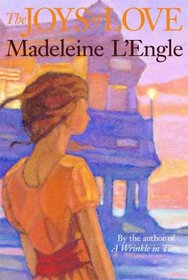Helpful Score: 2
Reviewed by Marie Robinson for TeensReadToo.com
Elizabeth has big dreams of becoming an actress. She loves everything about the theater and feels born to be a part of it. Her aunt, who has raised her, wants a more conventional life and disapproves of Elizabeth's ambitions to become an actress.
Taking place over a mere four days, Elizabeth is forced to learn a lot about herself, about her career ambitions, and about growing up. Her aunt disapproves of the lifestyle Elizabeth has adopted while working for a theater company, and has withdrawn the money she was paying for Elizabeth's room and board. This leaves Elizabeth to confront just what compromises she will make in her life to realize her dream.
The melodramatic title aside, this is a lovely book. It's set in 1946, with mentions of Automats, and with characters speaking a diction reminiscent of an earlier time. It's a detailed look into the lives of young men and women trying to find themselves by playing other characters. Elizabeth doesn't just have to stand up to her aunt, she also has to learn about the kind of love that comes along with growing up.
The characters are well drawn, and L'Engle deftly draws the reader in to the stories of the minor characters as well as the major ones. It is an example in character study, with a satisfying ending that does not feel trite or contrived.
Elizabeth has big dreams of becoming an actress. She loves everything about the theater and feels born to be a part of it. Her aunt, who has raised her, wants a more conventional life and disapproves of Elizabeth's ambitions to become an actress.
Taking place over a mere four days, Elizabeth is forced to learn a lot about herself, about her career ambitions, and about growing up. Her aunt disapproves of the lifestyle Elizabeth has adopted while working for a theater company, and has withdrawn the money she was paying for Elizabeth's room and board. This leaves Elizabeth to confront just what compromises she will make in her life to realize her dream.
The melodramatic title aside, this is a lovely book. It's set in 1946, with mentions of Automats, and with characters speaking a diction reminiscent of an earlier time. It's a detailed look into the lives of young men and women trying to find themselves by playing other characters. Elizabeth doesn't just have to stand up to her aunt, she also has to learn about the kind of love that comes along with growing up.
The characters are well drawn, and L'Engle deftly draws the reader in to the stories of the minor characters as well as the major ones. It is an example in character study, with a satisfying ending that does not feel trite or contrived.




